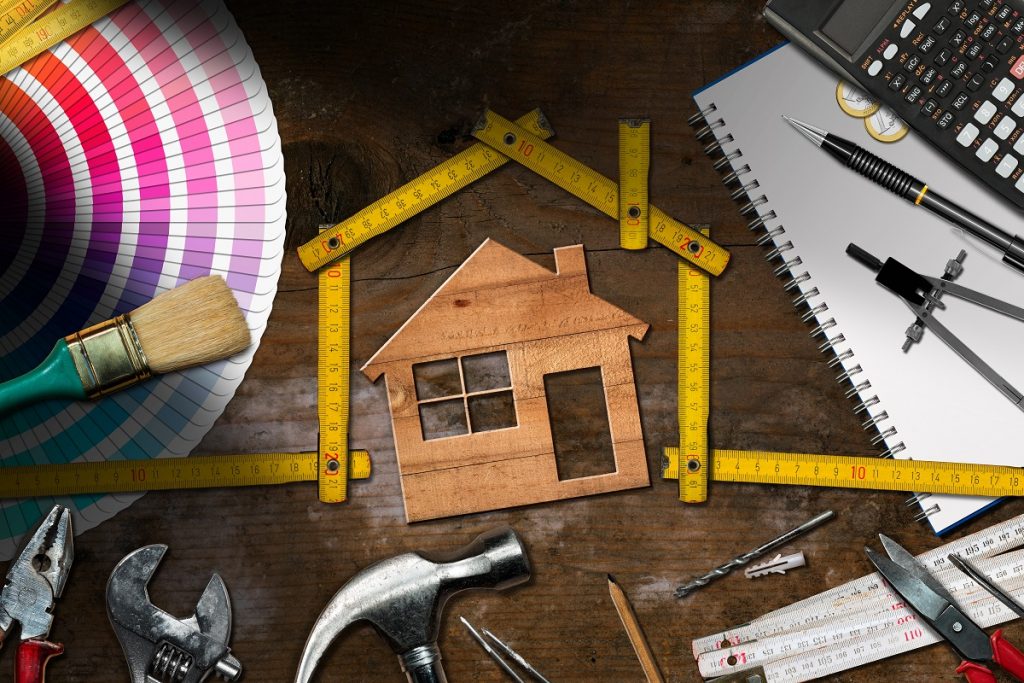Home projects are always challenging since you’ll need to balance your budget, time and make sure everything goes smoothly since one mistake can cost you thousands. If you’re the kind of person who’d break under the pressure of a big home renovation project, you’ll need to prepare beforehand.
With patience, foresight, and enthusiasm to adapt to changes, you can navigate the process easier and get through it with ease—and you can start by following these tips.
Communicate With Your Contractors
Communicating with your contractors is crucial. After all, your home renovation is your vision, and you’ll need to make sure these professionals are on the right track. Before your contractors start working, create a communication plan with them, including interaction methods convenient for both parties—and expectations for how long it’ll take.
You should also consult with a land surveyor because they are responsible for updating boundary lines and preparing sites for construction, helping you avoid legal disputes.
Take Audit of All Your Belongings

Whether you’re renovating your guest bathroom or kitchen, having a list of your permanent home goods is crucial for several reasons. Firstly, it’s great for insurance since it lets you keep track of your most valuable assets. Next, it makes it easier to clear out your things for the contractors, and it helps you identify the best storage solution for each one.
Finally, taking an audit of your belongings helps you decide how much you need to keep unpacked during the renovation.
Make Space
If you want to renovate a room inside your home, make as much room as possible for your contractors to help them roam around freely and make any necessary adjustments. You can start by removing fragile and expensive goods from the room and storing them somewhere safe. After all, you wouldn’t want to trouble your contractors with the constant worry of breaking your precious fine China set.
You should also remove bulky items like furniture if you have enough space. However, if you can’t physically move large items, you can ask your contractors to do it for you, but this usually amounts to an additional fee. You should also remove bulky items like furniture if you have enough space. However, if you can’t physically move large items, you can ask your contractors to do it for you, but this usually amounts to an additional fee. You should also make space for yourself in your own home. You would be living in your house while under renovation—plan for where you will be cooking, eating, and living in your house.
Update Your Home’s Security System

There will be days when your property will be packed with people during home renovations, ranging from designers to contractors. In some cases, you may rely on these individuals while you’re working or out of town. It’s better to put yourself at ease by updating your home’s security system.
There are several security elements you can add without disrupting the project. These include buying an in-home safe to protect your documents, using a video doorbell to track deliveries when you’re not at home, and installing “smart locks” that only you can reprogram.
Create a Contract and Read the Fine Print
Before you get started with the renovation, have a contract drafted by a lawyer and read over the fine print to see everything’s in your favor. After all, you’re doing a large-scale and expensive project, and a contract can protect you and the remodelers.
If you can’t understand everything in the contract, hire someone with legal experience to ensure you get a fair deal—and if something’s missing or disagree with, speak up!
Keep Your Ideas, Contracts and Receipts Organized
Besides keeping the actual paperwork and essential documents organized and safe, it’s wise to make digital bookkeeping of everything else. Spend some time to map out your organizational structure to ensure you’re on track with your home renovations. For instance, you can create idea boards with your family or designers on platforms like Pinterest.
Meanwhile, for your private files, store them in a cloud storage system and use your smartphone to scan and create PDFs, digitizing important documents like contracts for permanent safekeeping.
Finally, when it comes to tracking the project’s progress, use shared spreadsheets and calendars to keep the essential information available to anyone who needs to know.
Create a Home Renovation Budget

Although small home projects like fixing the gutters can be an easy and inexpensive venture, you’re bound to spend a lot of money when it comes to complete home renovations. So, before starting the projects, see how much it’ll cost you and create the appropriate budget for yourself—preferably one with a bit of cushion.
Once you’ve got a reasonable budget, make sure you have access to the amount. However, if you don’t have any cash on hand, consider taking a cash-out refinance. Doing this gives you money based on the equity in your property, giving you a leeway to continue your renovations.
If it’s the time for a home renovation, it’s best to be prepared to avoid facing problems down the line—and the things mentioned can help you get off to a great start, ensuring your renovation goes as smoothly as possible.







